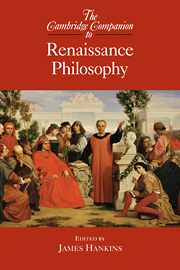1 - Introduction
Published online by Cambridge University Press: 28 November 2007
Summary
Readers who come to David Hume’s Enquiry Concerning Human Understanding (1748) equipped only with the taxonomies provided by modern histories of philosophy - “British empiricism” versus “continental rationalism,” scientific versus scholastic, ancients versus moderns - are likely to be taken aback at the way Hume in his first chapter, “Of the Different Species of Philosophy,” anatomizes the philosophy of his time. He distinguishes first a moral philosophy that “considers man chiefly as born for action,” which regards virtue as the most valuable of objects and “paint[s] her in the most amiable colours, borrowing all helps from poetry and eloquence,” treating the subject “in an easy and obvious manner.” Moral philosophers of this kind “make us feel the difference between vice and virtue; they excite and regulate our sentiments; and so they can but bend our hearts to the love of probity and true honour, they think, that they have fully attained the end of all their labours.” But there is a second species of philosophers who “consider man in the light of a reasonable rather than an active being, and endeavor to form his understanding more than cultivate his manners.” This kind of philosopher does not address the generality of men but “aim[s] at the approbation of the learned and the wise,” seeks “hidden truths” rather than an improvement in the behavior of mankind. Hume claims the first species of philosophy, being “easy and obvious,” will always be preferred to the “accurate and abstruse,” as is shown by the relative popularity of the first: “the fame of Cicero flourishes at present; but that of Aristotle is utterly decayed. La Bruyere passes the seas, and still maintains his reputation: But the glory of Malebranche is confined to his own nation, and to his own age. And Addison, perhaps, will be read with pleasure, when Locke shall be entirely forgotten.”
- Type
- Chapter
- Information
- The Cambridge Companion to Renaissance Philosophy , pp. 1 - 10Publisher: Cambridge University PressPrint publication year: 2007
- 4
- Cited by



